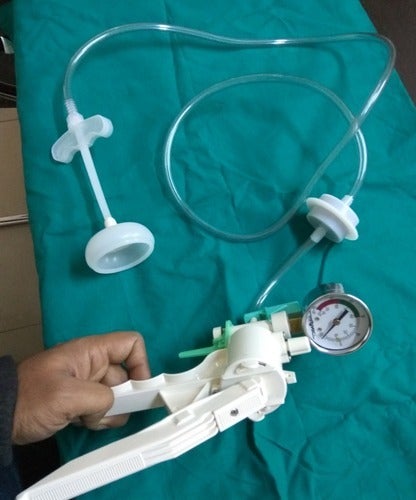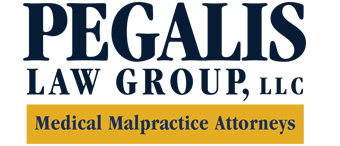-
How to Reduce Your Risk of Anesthesia-Related Injuries

While anesthesia-related injuries have become much rarer in recent years, many patients are still concerned about them—and understandably so. If you are preparing to undergo anesthesia for a medical procedure, you may be wondering if there is anything you can do to reduce your chance of suffering an injury. Here are some tips to keep in mind:
Ask your physician about potential complications.
Before you decide to undergo anesthesia, talk to your medical provider about any possible side effects or injuries that could result. Make sure that you’ve discussed each possibility, and that you fully understand the information you’re getting. Don’t be afraid to ask follow-up questions, or to express any hesitations you’re feeling.Consider your family history.
If you have any family members who have ever experienced a negative physical reaction to anesthesia, it could indicate that you are more likely to experience a similar reaction. If you find out that you do have a family history of bad reactions to anesthesia, be sure to tell your physician.Follow all pre-anesthesia instructions.
Your physician will provide you with instructions to follow prior to receiving anesthesia, and it’s important that you follow all of them. In particular, you should avoid eating before your anesthesia is given to you and refrain from taking vitamins, supplements, and anything else that might interfere with the safe administration of the anesthesia.If you have questions about medical care or treatment, or a catastrophic injury, don’t delay in calling Pegalis Law Group, LLC for a no-fee consultation! We obtain justice for our clients after hospitals, doctors, construction companies, and drivers commit preventable errors that cause harm. Reach us at (516) 684-2900.
Attorney Advertising
-
Why Regular Blood Tests Are Important

Can you remember when you had your last blood test? If you want to make sure that your body stays as healthy as it should, routine blood tests are essential. While you may have had blood tests done in the past, you may not be sure why they are so important to your health and welfare. Here’s why blood tests are so critical for everyone.
Testing for Diseases
Blood tests are often used to determine whether or not a patient has contracted a certain disease or has a chronic condition that cannot be detected otherwise. Some diseases and disorders that are commonly diagnosed using blood samples include anemia, diabetes, coronary heart disease, and HIV.Evaluating Your Organs
Your physician may also want to make sure that your organs are functioning properly, particularly in the aftermath of surgery. Organs that are often evaluated by taking blood samples include the liver, the heart, the kidneys, and the thyroid. If your physician suspects that you might have a disease of any of these organs, or if there is a concern that medications you are taking are affecting your organs, he or she may order a blood test.Assessing Your Blood
Blood tests can also be used to evaluate your cholesterol level, your protein level, your blood sugar, and other issues that are specific to your blood. A blood test may also be used to test how well your blood is clotting, and it can even be used to determine your current oxygen level.If you have questions about medical care or treatment, or a catastrophic injury, don’t delay in calling Pegalis & Erickson, LLC for a no-fee consultation! We obtain justice for our clients after hospitals, doctors, construction companies, and drivers commit preventable errors that cause harm. Reach us through our website or call (516) 684-2900.
Attorney Advertising
-
Hospital Safety Tips

When most people go to the hospital, they assume that they will be well cared for by capable medical providers. However, it’s still important to be proactive and to take appropriate steps to protect your own health and safety as a patient. Here are some tips to keep in mind if you need to stay at a hospital or other medical facility:
Bring someone with you.
If possible, it’s a good idea to bring a trusted friend or family member with you to the hospital. Along with providing moral support, having someone with you will help you remember to ask the right questions—and also help you remember the answers!Keep careful track of your medications.
If you are prescribed to take any medications while you’re at the hospital, make sure you know what they are called, what they are for, and what the proper dosage is. Receiving the wrong medication is one of the most common forms of hospital negligence, so it’s important to keep track of your medication schedule. Also make sure that before receiving any medication, the person giving it to you checks and scans your ID wristband. Doing so will ensure that the medication is for you.Find out who to call for help.
When you arrive at the hospital, make sure that you know the doctor and nurse assigned to your care. Also, make sure that you let them know if there is a change in your condition. Hospitals can be busy environments, and knowing who you should call or ask for will also help to keep you safe. Don’t be afraid to speak up regarding changes in your condition or any questions you may have.If you have questions about medical care or treatment, or a catastrophic injury, don’t delay in calling Pegalis & Erickson, LLC for a no-fee consultation! We obtain justice for our clients after hospitals, doctors, construction companies, and drivers commit preventable errors that cause harm. Reach us through our website or call (516) 684-2900.
Attorney Advertising
-
Preventing Birth Defects

There is never a wrong time to time to educate yourself about birth defects and how you can help to prevent them from happening. While birth defects cannot always be prevented, there are some steps you can take that will reduce the risk of them occurring.
Get up to date on your vaccines.
Vaccinations are important for protecting yourself from illness, but they can also protect your unborn baby. It’s important to make sure that you get the yearly flu shot, as well as the whooping cough vaccine. Make sure to consult your physician before getting vaccinated, so you can be sure that you’re doing it at the right time.Avoid harmful substances.
As every physician will advise you, abstaining from tobacco, alcohol, marijuana, and other drugs is essential during pregnancy. Having any level of these drugs in your body can significantly raise your risk of birth defects, so it’s important to quit using them as soon as you find out that you are pregnant.Take folic acid every day.
Folic acid is a B vitamin that serves a number of important functions, including promotion of new cell development. According to the CDC, you should take 400 micrograms of folic acid on a daily basis during pregnancy. This is an important step that will help to reduce your baby’s risk for birth defects of the spine and brain. You shouldn’t take higher doses than this unless your physician has recommended it.If you have questions about medical care or treatment, or a catastrophic injury, don’t delay in calling Pegalis & Erickson LLC for a no-fee consultation! We obtain justice for our clients after hospitals, doctors, construction companies, and drivers commit preventable errors that cause harm. Reach us at (516) 684-2900.
Attorney Advertising
-
Health Tips for Moms-to-Be

If you’re an expectant mother, it’s important to take some extra precautions to ensure that you stay healthy throughout your pregnancy. For instance, you’ll want to take care to avoid foods that could put you at a higher risk of foodborne illnesses that could affect your baby. These foods include hot dogs, deli meats, soft cheeses, smoked salmon, and anything that contains unpasteurized milk. You should also be careful to wash your hands before and after handling food, to wash all fruits and vegetables before eating them, and to keep raw meat out of contact with the other foods you eat. Make sure all food is cooked to the appropriate temperatures, and refrigerate uneaten portions right away.
If you are concerned about a misdiagnosis or possible medical error, contact the law firm of Pegalis & Erickson LLC in New York. For 45 years, we have advocated for people of all ages, in order to help our clients financially and make healthcare safer for everyone. You can reach us today by calling (516) 684-2900.
Attorney Advertising
-
How Cerebral Palsy Affects Nutritional Needs

Cerebral palsy is a congenital disorder that affects a child’s mobility, muscle tone, and balance. It is linked to injury to the brain that occurs during, before, or immediately after being born. The repercussions of cerebral palsy usually affects many aspects of a child’s life, including their diet. Unfortunately, cerebral palsy can make it more difficult for a child to get the nutrition they need to stay healthy. Here’s what you need to know:
Cerebral palsy can affect the ability to eat
Having cerebral palsy can impact motor skills, which can make it a challenge to hold utensils or feed oneself. It can even make it difficult to chew or swallow food safely without choking. As a result, children who have cerebral palsy may be unable or reluctant to eat, and they may have difficulty learning to feed themselves without supervision. This can lead to lifelong problems with nutrition.Cerebral palsy can cause gastrointestinal problems
Studies have shown that children who have cerebral palsy are more likely to develop gastrointestinal issues, including chronic stomach aches, diarrhea, constipation, and pain in the abdomen. This, in turn, can lead to difficulty keeping food down. Children who have these problems may find it hard to eat the kinds of foods they need in order to lead a healthy life, and they may experience related problems with weight gain. Often children who have cerebral palsy may need a G-tube which feeds supplemental nutrition directly into the stomach so that the child gets enough nutrients to grow.Children with cerebral palsy need the right nutrients
Parents of children with cerebral palsy need to make sure that they are getting the proper nutrients in order to ensure that their bones stay strong and healthy. This means that they need to be getting plenty of vitamin D, calcium, and phosphorus. If you are concerned that your child is not gaining weight normally and/or not getting all of the appropriate nutrients, talk to your doctor right away.If you have questions about medical care or treatment, or a catastrophic injury, don’t delay in calling Pegalis & Erickson, LLC for a no-fee consultation! We obtain justice for our clients after hospitals, doctors, construction companies, and drivers commit preventable errors that cause harm. Reach us at (516) 684-2900.
Attorney Advertising
-
What Are the Risks of Vacuum Assisted Deliveries?

For the most part, pregnancy and childbirth are natural processes. In some cases, however, mother and baby face risks, whether during the pregnancy or during labor. When there are complications, and the danger becomes too great, doctors often feel they must intervene to promote a positive outcome. When the intervention involves a vacuum assisted delivery however, there are significant risks involved.
* Why do doctors use vacuums? Sometimes at the end of a difficult labor, the doctor decides to help the process along using vacuum extraction if the mother or baby is in distress.
* How does the process work? Once the baby is low enough in the birth canal to be delivered, a vacuum cup is placed on the baby’s head, with suction applied so the cup doesn’t fall off. When the mother has another contraction, the mother pushes while the doctor pulls the baby using the vacuum cup.
* What risks does a patient face with a vacuum extraction? Vacuum extraction poses risks for the baby. Some of these are relatively minor complications like scalp lacerations or bleeding in the space under the fibrous portion of the skull bone. These typically clear up on their own, though the bleeding, called cephalohematoma, can sometimes require surgery. More serious complications include subgaleal hematoma, which is more serious bleeding below the scalp and can be life-threatening if a significant amount of blood is lost, or intracranial hemorrhage, which is bleeding under the skull that can lead to severe brain injury. There’s also a risk of skull fracture.
* What’s the responsibility of the doctor when choosing to use vacuum extraction? With all these risks, it’s clear that this intervention should only be used when absolutely necessary, and with informed consent from the mother. Often, there are signs and symptoms long before delivery, which should alert the medical care providers that it will be a difficult delivery. A discussion should be had with the mother about the option of a caesarian delivery, so as to avoid the potential risks associated with the use of a vacuum. Medical providers must inform patients of all the associated risks, and use this procedure only when it’s necessary and provided with the utmost competence.
If you or your baby suffered an injury during an assisted delivery, it may be time to contact a medical malpractice attorney. Pegalis & Erickson, LLC is here to help you, providing capable legal representation in the areas of New York. If you have questions about medical care or treatment, or a catastrophic injury, don’t delay in calling Pegalis & Erickson, LLC for a no-fee consultation! We obtain justice for our clients after hospitals, doctors, construction companies, and drivers commit preventable errors that cause harm. Reach us at (516) 684-2900.
Attorney Advertising
-
The Magnitude of Handwashing

Regular handwashing is the most important thing you can do to help prevent the spread of dangerous bacteria and viruses. Handwashing is particularly critical in a medical environment, where patients may be at increased risk of infection. Here is what you need to know about the value of handwashing.
Handwashing can protect patients from infection
Medical facilities, by their nature, expose patients to the risk of illness. According to the Centers for Disease Control and Prevention, an average of one out of 25 hospital patients per day will come down with a hospital-related infection. Healthcare professionals can help to protect their patients by being diligent about following proper handwashing protocol.Handwashing should happen before and after contact with patients
Most people wash their hands after using the bathroom and before handling food. For healthcare professionals, however, handwashing needs to happen both before and after they come into direct contact with any patients they are providing care for. Otherwise, there is a serious risk that they will spread contaminants from one patient to the next, resulting in avoidable illness or infection.Proper handwashing is effective handwashing
In order to effectively remove germs from the hands, handwashing in a medical environment needs to be done carefully and thoroughly. Simply rinsing off your hands with water is not sufficient. In order to wash your hands effectively, you should start by rinsing your hands with clean water, lathering them with soap, scrubbing for at least 20 full seconds, and then completely rinsing them off.If you have questions about medical care or treatment, or a catastrophic injury, don’t delay in calling Pegalis & Erickson, LLC for a no-fee consultation! We obtain justice for our clients after hospitals, doctors, construction companies, and drivers commit preventable errors that cause harm. Reach us at (516) 684-2900.
Attorney Advertising
-
The Importance of Health Diaries for Proactive Patients

As a patient, it’s essential for you to be as proactive as possible when it comes to your health. After all, you will be able to monitor your own health better than anybody else will. One of the most important actions you can take is to keep a regular health diary. These are some of the benefits of keeping up with your health diary:
It will provide you with a guide to your symptoms.
Regardless of what type of health issue you are dealing with, having a health diary will allow you to keep track of your symptoms. When you have a health diary, you can make a note of when you experienced your symptoms, how long they lasted, and how severe they were. As you track these changes over time, it can help you get a better perspective on your health. It can help your doctor with a proper diagnosis and plan of care.It will help you have meaningful discussions with your physician.
When many patients visit their healthcare providers, they have trouble being specific in terms of the symptoms they have experienced. Keeping a regular health diary allows you to access that information whenever you need to so that you can get better and more appropriate care from your physician.It will provide you with a record of your health issues.
Most importantly, a health diary provides you with an ongoing record of the status of your health. It can provide valuable information to your loved ones should you be in need of care and treatment, and unable to communicate on your own.If you are concerned about a misdiagnosis or possible medical error, contact the law firm of Pegalis & Erickson LLC in New York. For 46 years, we have advocated for people of all ages, in order to help our clients financially and make healthcare safer for everyone. You can reach us today by calling (516) 684-2900.
Attorney Advertising
-
Spotlight on Medication Errors

It would be hard to overstate the importance of avoiding medication errors. If a patient does not take the proper dosage of a medication or is given the wrong prescription, it can have serious consequences for his or her health and possibly their life. It’s always a good time to check that you know all of the important information you should about any medications you are taking. Here’s how you can help prevent medication errors:
Get instructions from your physician.
It’s important to get thorough instructions from your physician or your pharmacist on how to take your medication. You should know what dosage you should be taking, when to take it, and how many days you should be taking it for. If anything is unclear to you, be sure to ask for clarification.Ask about drug interactions.
Your physician should be made aware of any other medications you are taking, so that you will not be prescribed a drug that may have a dangerous interaction. Make sure that you also know about any possible side effects the medication may have, and whether it interacts negatively with any foods, such as juices or alcohol.Make sure you know the medication name.
Confusing one medication with another is a common mistake, and it can be an extremely serious one. Many medications have names that sound similar, so it’s important to make sure that you know both the generic name and the brand name of the medication you are taking.If you are concerned about a misdiagnosis or possible medical error, contact the law firm of Pegalis & Erickson LLC in New York. For 46 years, we have advocated for people of all ages, in order to help our clients financially and make healthcare safer for everyone. You can reach us today by calling (516) 684-2900.
Attorney Advertising
Recent Posts
Popular Posts
categories
- Uncategorized
- Infographic
- Patient Safety
- Patient Health
- Stillbirth
- Birth Injuries
- Medical Malpractice
- Medical Negligence
- Event
- Erb's Palsy
- Injury
- ER
- Video
- Cancer Misdiagnosis
- Medication Errors
- Cerebral Palsy
- Medical Negligence Lawyer
- Anesthesia Injuries
- Brachial Plexus
- Prostate Cancer
- About Us
- Men's Health
- Skin Cancer
- Breast Cancer
- Misdiagnosis
